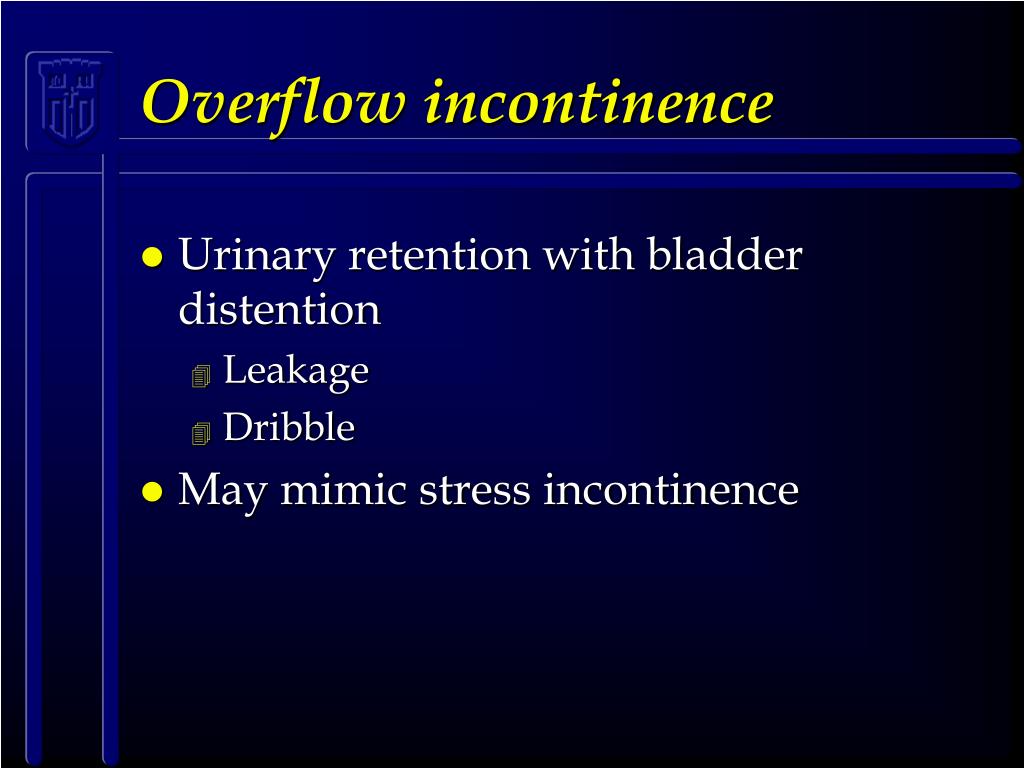

Overflow incontinence: Frequent dribbling of urine from a bladder that doesn’t completely empty.This may be an issue for people who have multiple sclerosis, diabetes, Alzheimer’s disease, Parkinson’s disease, or have had a stroke. This can include getting up more than once at night to urinate. Urgency incontinence: Sudden, intense urge to urinate followed by accidental loss of urine.

This most often occurs in men and women in all stages of life and may begin for women during menopause. Stress incontinence: Leakage when you put pressure (stress) on your bladder by coughing, sneezing, lifting heavy objects, laughing or exercising.Baby movements in the wombs during pregnancy can also cause some internal damage and lead to urinary incontinence after childbirth. Juliet’s Reminder: Urinary incontinence does not only affect the elderly.

However, we should take our time to talk to them about any problems that they are facing to help them in the best way that we can. Juliet understands that sometimes our parents can be too stubborn or embarrassed to seek medical treatment. If other methods haven’t worked, you can consider the any of following surgical treatments: bulking agent/collagen injection, artificial urinary sphincter, anterior vaginal repair, or bladder neck suspension. It is recommended to discuss with your doctor in detail before attempting a surgical treatment.

This exercise is especially useful for genuine stress urinary inconsistency patients. Do at least 1 set daily, and you’ll see the results of the exercise after 2 to 3 months. Lift buttocks and thighs upwards, contracting pelvic muscles for 10 seconds.This exercise is useful for people experiencing frequent urination, urinary incontinence, women experiencing uterine prolapse (muscles unable to support uterus), and men experiencing premature ejaculation. Kegel or pelvic exercises can increase pelvic strength and endurance. Kegel exercise (also known as pelvic exercise).Try not to drink too much water within a short time, but be careful not to get dehydrated! Concentrated urine can stimulate the bladder or cause infection. Start with about 15 minutes, then slowly increase the time gap between each urination. If you feel the urge within an hour, practise holding it in by focusing on some other things, but not for too long. Normal urination occurs every two to three hours. While this does not necessarily mean that you have urinary incontinence, you can practise to reduce urination frequency. If you visit the toilet more than 8 times during the day, you may have an overactive bladder. So let’s take a look at how we can treat or prevent these symptoms! Now, you know that urinary incontinence is a symptom, not a disease. Symptom(s): Mixed symptoms of genuine stress incontinence and urgency incontinence Functional Incontinence Symptom(s): Inability to urinate due to physiological problems or disabilities despite having a normal urge to urinateĬause(s): Disability of certain organs or parts of bodyĬommon patients: Disabled people elderly Alzheimer’s patients Osteoporosis patients 5. Symptom(s): Frequent urination (more than 8 times during daytime, more than twice during sleep at night)Ĭause(s): Damage on the nerves around the bladder, causing a need to urinate as soon as there is a mild urge to do so.Ĭommon patients: People with urethra or bladder infection diabetic patients stroke patients people who have had spinal nerve damage, people with overactive bladder or inconsistent contraction of bladder 4. Most common type.Ĭause(s): Abdominal pressure causes relaxation of the pelvic muscle, resulting in less or no control of bladder.Ĭommon patients: Women, especially after childbirth (3rd child and beyond/had a huge foetus) women who have undergone menopauseMen or women with obesity or frequent coughing. cough, laughter, sneeze, running, lifting heavy objects) cause involuntary urination or urine leakage without feeling the urge to urinate, usually in small amount. Symptom(s): Increase in abdominal pressure (e.g. Symptom(s): Invluntary urination without feeling any urge to urinateĬause(s): Weak bladder contraction or urethral obstruction (for men) cause an overfull urinary bladder without the urge to urinate.Ĭommon patients: Men with prostatic hyperplasia (enlarged prostate gland) women who have undergone hysterectomy (removal of all or part of the uterus) 2. There are 5 different types of urinary incontinence: 1.


 0 kommentar(er)
0 kommentar(er)
